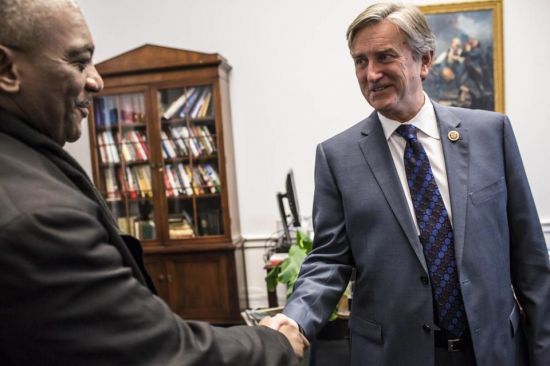
US Representative John Tierney in his Capitol Hill office in February. AP/Globe, Creative Commons
WASHINGTON -- With recent legislation to strengthen background checks and ban assault weapons blocked in Congress, Representative John Tierney, a Salem Democrat, said he is introducing a bill to require handgun manufacturers to personalize their weapons to make them impossible to fire if they fall into the wrong hands.
The bill, the Personalized Handgun Safety Act of 2013, mandates within two years that newly manufactured handguns be equipped with the technology that allows the guns to only work in the hands of their owners or other authorized users. Manufacturers that do not meet the standards could be held liable. And individuals or businesses selling older handguns must have them retrofitted with personalization technology within three years after the bill is enacted, at the expense of the federal government.
Acknowledging the difficult political climate for new gun legislation, Tierney remained optimistic, calling his bill a “common sense” reform to save lives by tapping into technology that already exists.
“This technology was developed and exists, but in the past was shelved because of efforts of the powerful gun lobby,” Tierney said on a conference call with reporters Wednesday afternoon. “This does not in any way restrict somebody’s ability to own a gun. It recognizes and honors the second amendment.”
The proposed law would protect children from accidental shootings in the home, prevent criminals who steal handguns from using them, and help cut down on gun suicides, said Tierney and other advocates of the law.
Personalized handguns are already being sold in other countries, and several manufacturers plan on bringing the technology to the American market this summer, Tierney said. In response to the Newtown school massacre, President Obama has directed the National Institute of Justice to study the state of gun personalization technology.
Tierney said he has seen demonstrations of some the technology in his office, including fingerprint scanners and a wristwatch using radio waves to activate a gun. The technology that exists ranges from using a simple pincode to a biometric gun similar the one shown in the latest James Bond movie.
Source: Tracy Jan, Boston Globe